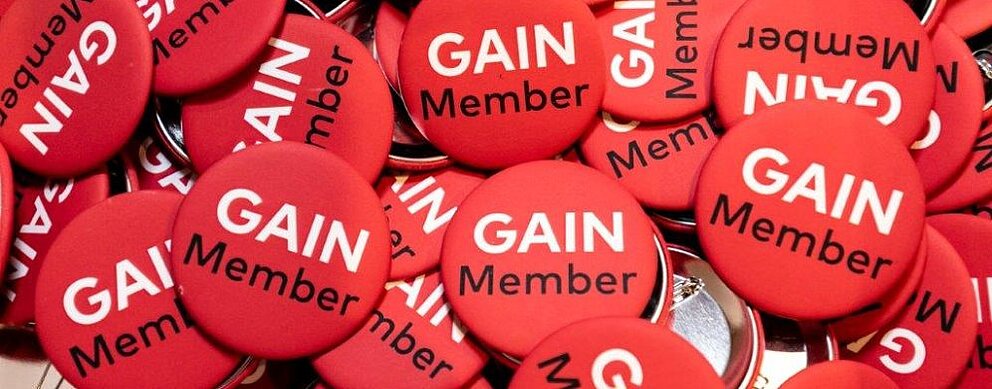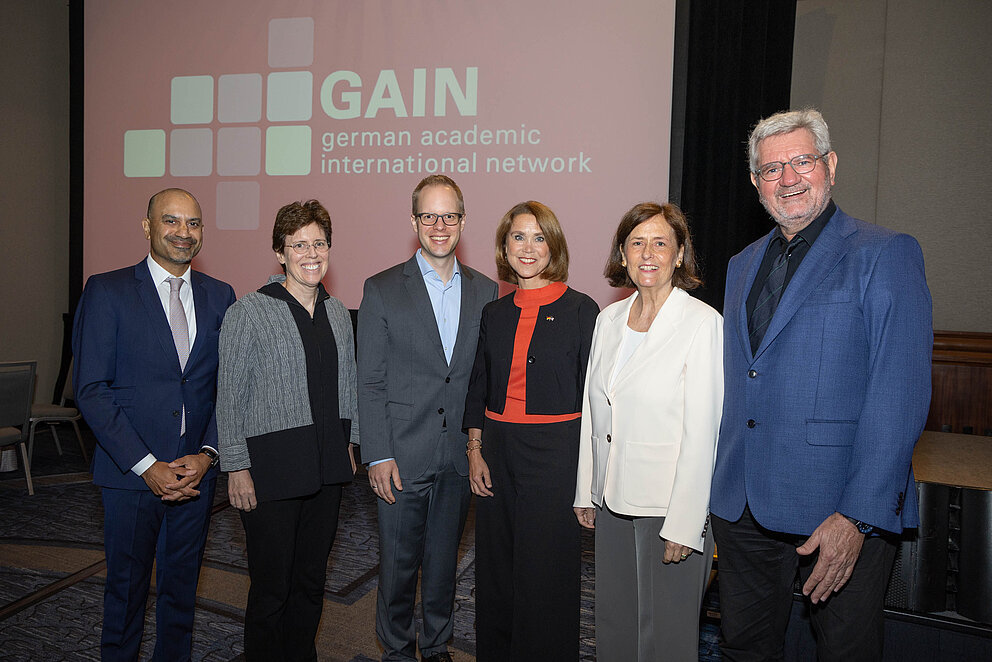
Contact
Press, Communications and Marketing
Tel.: +49 228 833-144
Fax: +49 228 833-441
presse[at]avh.de

At the 23rd Annual Conference held by the German Academic International Network (GAIN), postdoc researchers had the opportunity to obtain advice and guidance to help them plan careers at German universities, research institutes or in industrial research. Panel discussion, lectures, workshops and a talent fair offered insights into concrete funding and work opportunities in Germany.
This year’s GAIN Conference was opened by Dr Jens Brandenburg, State Secretary in the Federal Ministry of Education and Research, and the presidents of the Deutsche Forschungsgemeinschaft (DFG), the German Academic Exchange Service (DAAD) and the Alexander von Humboldt Foundation.


Using its Humboldt Research Fellowship, the Foundation fosters young researchers on a targeted basis and brings international researchers to Germany.
In his address, Robert Schlögl, President of the Humboldt Foundation, stressed the importance of global scientific exchange. The Humboldt Foundation, he noted, focuses on building lifelong ties. Strong personal networks are an essential element in successful knowledge production and the global transfer of knowledge, he pointed out, adding that it is vital to further expand and develop international collaboration, particularly in the regions of the Global South.
Addressing young researchers, Schlögl made the appeal: “Communication is an integral part of scientific work.” The expertise of researchers must find its way into society, he said, stressing that this is also important for further strengthening research and academia’s independence, particularly in light of increasing social division and growing hostility toward science. “Academic and scientific freedom has constitutional ranking”, he stated.
The German Academic International Network
The German Academic International Network (GAIN) is a network for German scientists and researchers who work throughout the world. Since 2003, GAIN has supported these individuals with a diverse programme to help them establish and maintain contact with German research institutions, prepare them for their return to the German research landscape and help them articulate their interests in dealings with political decision-makers. GAIN is a joint initiative of the Humboldt Foundation, the DAAD and the DFG. It is funded by Germany’s Federal Ministry of Research and Education. Associated members are the Fraunhofer-Gesellschaft (Fraunhofer Society), the Helmholtz Association of German Research Centers, the Leibniz Association, the Max Planck Society, the German Rectors' Conference (Hochschulrektorenkonferenz), German Academic Scholarship Foundation (Studienstiftung des deutschen Volkes) and the German Cancer Aid (Deutsche Krebshilfe). A number of collaborative partners from science, industry, and politics regularly support GAIN in its work.
